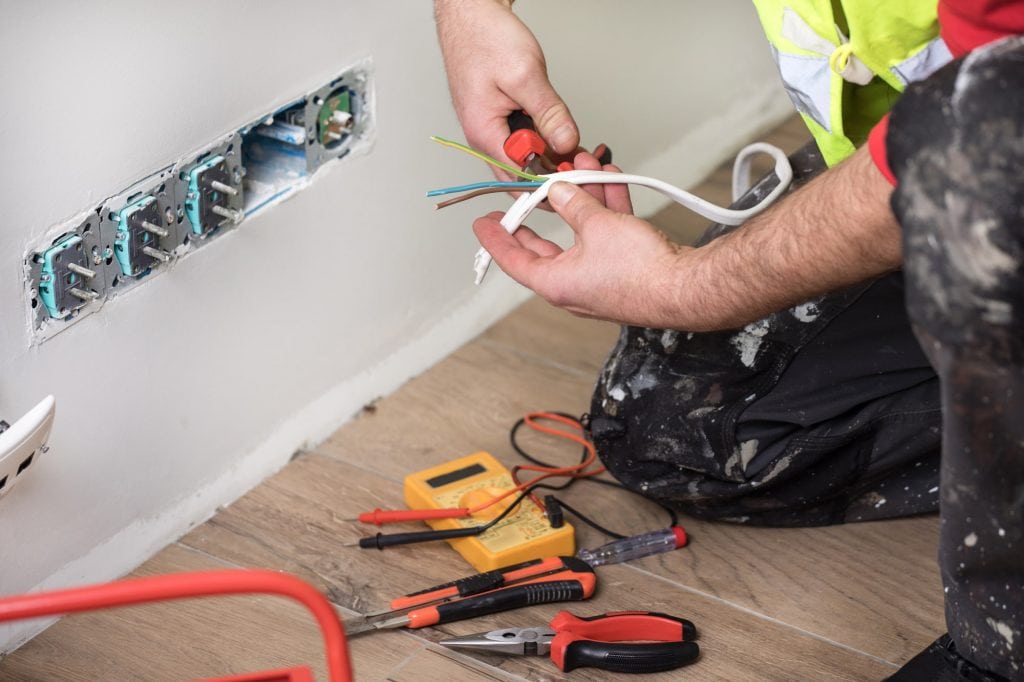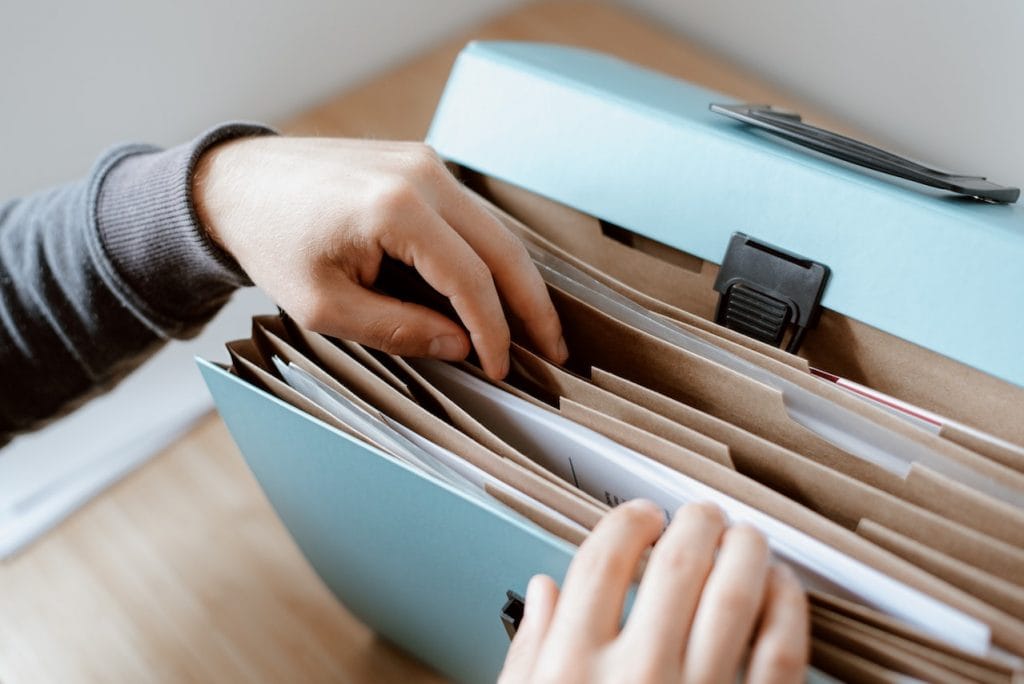Moving to a new home can be exciting, fun, and offer a clean slate. However, relocating can also feel daunting. The key to a hassle-free relocation is to plan ahead and start planning early.
Whether buying your first home or selling your childhood home, the experienced real estate agents at eXp Realty can help make your home relocation process a breeze.
From creating a timeline two months before the relocation to labeling boxes and finding storage units, let’s look at 15 tips to relocating hassle-free.
Relocation and the US Real Estate Market
A thorough understanding of the US real estate market is crucial when relocating. In today’s highly competitive and fast-paced US real estate market, the importance of having a reliable real estate professional by your side when buying a new home cannot be overstated.
Your chosen real estate agent will guide you in house hunting or navigating the home-buying and home-selling process. However, here are some relocation tips to start with.
Tip #1: Plan Ahead
To ensure a successful relocation, planning ahead is essential. Start by considering all potential relocation expenses, organizing your tasks in advance, creating a comprehensive timeline, outlining all the vital tasks you must complete before, during, and after your move.
This first tip to relocating is crucial in managing moving expenses, reducing stress, and ensuring a smooth transition from your current house to your new home.
Consider creating a timeline for relocating two months ahead and breaking it into weekly or bi-weekly milestones leading up to the big day.
For example:
- Eight weeks out, research movers and obtain quotes.
- Six weeks out, sort through personal items and donate or discard unnecessary clutter.
- Four weeks out, secure packing supplies and begin organizing boxes based on room arrangement.
This systematic approach will help keep you on track while providing clear milestones indicating progress toward achieving each goal throughout the process.
Tip #2: Organize Your Belongings

To simplify your relocation process, it’s important to organize your belongings by sorting them into categories such as keep, donate, or sell and labeling the boxes accordingly.
First, categorize your possessions into clothing, furniture, kitchenware, electronics, etc.
As you sort through each group, create four subcategories:
- Keep
- Donate, sell, or gift
- Store (for seasonal items)
- Discard/recycle. Be mindful of the available space in your new home or apartment when deciding what needs to go with you, especially if you are downsizing.
Keep an inventory list of all the significant items during this process – this will come in handy when organizing boxes later on. Remember that donating non-essential belongings eases the stress associated with packing while benefiting others who may need those items more than you do.
Color-coding boxes according to the room they belong to can help movers identify where each box should go when it arrives at your new home.
To take things one step further, consider creating an inventory for every item you’re moving using a spreadsheet or notebook. This will make the process easier and ensure that everything has been accounted for so nothing gets left behind by accident.
Tip #3: Hire a Reputable Moving Company
When choosing a moving company, there are a few key criteria you should consider to ensure that you are selecting a trustworthy and reliable provider. Some moving companies even have relocation packages that you can receive a price cut on, so do research beforehand to get the best deal possible!
First, look for a company with experience in the industry and positive reviews from past customers. Another important factor is transparency in pricing and services. A reputable mover will provide a clear breakdown of all fees upfront without any hidden costs or surprises on moving day.
Additionally, they will have appropriate licensing and insurance coverage to protect your belongings during transit and ensure a safe relocation. You’ll want to ensure that your breakable items and heavy items are in good hands throughout your move.
Tip #4: Label Your Boxes
When it comes to packing up your belongings for a move, labeling boxes is key. Not only will it help with the organization during the moving process, but it will also make unpacking much easier once you arrive at your new home.
Be sure to label each box clearly with its contents and which room it belongs in; clear adhesive labels will ensure that labels stay readable throughout the move process.
Additionally, make sure to label boxes with specific details such as contents (“Books” or “Kitchenware”) and any special handling instructions (“Fragile” or “Do not stack”).
Lastly, consider making an inventory list of all items packed in each box and their corresponding number.
Tip #5: Research Your New Community

Before moving to a new community, it’s important to research and learn as much as possible about the area.
Consider factors such as schools, parks, public transportation options, community events, and local amenities like shopping centers and restaurants. Talk to locals and ask for their recommendations on what to see and do while you’re there.
Another helpful tip to relocating is to check out crime rates for the neighborhood you are considering. Many cities have websites that provide up-to-date information on crime statistics which can help inform your decision-making process.
Tip #6: Update Your Address
One of the most important tips to relocating is to update your address, ensuring you receive all your important mail and packages at your new home.
Start by setting a deadline for updating your address with specific entities such as your employer, bank, credit card companies, and other important organizations.
Then, prioritize which ones are more urgent and work on them first. You can also set reminders or alerts in advance so you remember to follow up on any necessary updates.
Tip #7: Pack a Bag of Essentials
Moving can often be unpredictable and stressful, so preparing for any unforeseen circumstances is important. One of the best ways to do this is by packing a bag of essentials you’ll need during your move.
In addition to packing a bag of essentials, it’s also a good idea to have contingency plans in place. For example, if you’re driving long distances or will be staying in hotels along the way, ensure you have extra cash in case of emergencies.
It’s also wise to research potential issues, such as inclement weather or traffic delays, ahead of time and plan accordingly.
Tip #8: Prepare Your New Home

Preparing in advance before moving to your new home will help you feel more comfortable in the new surroundings and reduce the stress associated with the move. This includes setting up utilities and ensuring all essential services are established before you arrive.
This preparation includes electricity, gas, water, internet, cable TV, phone service, and any other necessary services. Don’t forget to update your address with each provider to ensure you receive bills and important correspondence from them at your new location.
Tip #9: Notify Your Contacts
Remember to notify your contacts of your new address and contact information, decreasing the chances of miscommunication.
With the emergence of social media and phone calls, this may seem less pressing. However, if you have any friends or family that still like to send snail mail or enjoy stopping by spontaneously, make sure to let them know where your new address is.
Tip #10: Consider Storage Options
When relocating, it’s essential to consider storage options for items you may not need in your new home immediately, including seasonal clothing, sports gear, and off-season decor.
Selecting the right storage option is crucial when planning a relocation. Whether you need temporary storage or something more permanent, there are several factors to consider before deciding.
One important factor to keep in mind is the size of the unit you will need. Make sure to take accurate measurements of your belongings and select a unit that can accommodate them comfortably.
Investing in filing cabinets, shelves, and other storage items can also be helpful when keeping important paperwork and documents easily accessible during your move. Additionally, it might be worth looking into climate-controlled units if you’re storing valuable items that extreme temperatures or humidity could damage.
Tip #11: Take Care of Your Pets
When relocating, it’s important to take care of your pets by researching pet-friendly accommodations and transportation options, updating their identification tags with your new contact information, and ensuring they have enough food and water for the move.
If possible, it may be a good idea to have your pet(s) stay with a trusted friend or family member on moving day so you can get everything done without worrying about their safety, whereabouts, or any added chaos.
Tip #12: Keep Important Documents Safe

Be sure to store and transport your important documents carefully during the move to avoid getting lost or damaged.
You can start by identifying which documents you need during and after the move, such as identification cards, passports, insurance policies, medical records, school transcripts, and financial statements.
Once you have identified these documents, make copies and store them in a separate folder or container to keep with you during the relocation.
Also, label your document boxes as “Important Documents” so they won’t be mixed up with other belongings on the moving truck.
Tip #13: Check Your Insurance Coverage
Before you relocate, it’s essential to check your insurance coverage to ensure that you have adequate protection during the move; this includes home, automobile, and health insurance.
Check your insurance coverage for any moving-related damages and losses. Moving companies usually offer basic protection, but it may only cover some of your belongings’ value, especially if they’re high-end items like jewelry or artwork.
Another important aspect is updating your home insurance policy to reflect your new address and property value. This will protect you against natural disasters, thefts, and other unforeseen events in your new neighborhood.
Before signing up for any additional coverage or changing policies, compare quotes from different providers and read through each policy thoroughly to understand what’s covered and what isn’t.
Tip #14: Pack Smart
Packing for a move can be overwhelming, but with some efficient and safe packing practices, it’s possible to make the process less daunting. Firstly, start by decluttering and sorting your belongings.
This will help you decide what items are worth taking along and which should be discarded or donated. Next, label boxes clearly to avoid confusion and damage during transit.
Use appropriate packing materials like bubble wrap, packing paper, or foam peanuts to safeguard delicate items such as antiques or electronics from damage. Lastly, consider hiring professional packers if you need extra assistance packing bulky or oddly shaped objects safely and securely.
Tip #15: Take Care of Yourself
Relocating can be an incredibly stressful time, both physically and emotionally. Taking care of yourself during this transitional period is important by finding ways to manage stress and maintain your overall health. Be sure to get enough rest, stay hydrated, and seek support from friends or a professional if needed.
By prioritizing these habits, you’ll be better equipped to handle relocating demands while maintaining overall wellness.
Key Takeaways

The process of relocating can be overwhelming and stressful without proper planning and preparation.
By creating a timeline, hiring a reputable moving company, labeling boxes, researching your new community, updating your address, preparing a bag of essentials, taking care of yourself and your pets, packing smartly, storing important documents safely, and checking insurance coverage, moving can be less stressful.
While planning ahead can make for a hassle-free relocation, having an experienced real estate agent on your side is invaluable. Contact your local eXp agent to help alert you to new property listings when they come on the market and aid in your property search.With the help of an eXp real estate agent following these proper planning tips to relocating, you’ll have a stress-free move.
FAQs
These frequently asked questions address common questions about relocating, providing expert advice to ensure a hassle-free move.
What is the first thing to do when relocating?
The first thing to do when relocating is to plan ahead. Creating a timeline for your move can help you stay on track and avoid last-minute stress. Start by determining your moving date, and work backward from there.
Consider how long it will take to pack your belongings, find a new home or apartment, and arrange for movers or transportation.
How do I prepare for a relocation?
To prepare for a relocation, create a timeline outlining all the tasks you must complete before moving day. Hire a reputable moving company, organize your belongings, research your new community, label your boxes clearly, and update your address with relevant authorities.
Consider packing essentials separately in case of unforeseen circumstances and making arrangements for storage if necessary. Taking care of yourself during this process is equally important; eat well, exercise regularly, and take breaks to avoid burnout or undue stress.
What to do two months before moving?
Start by decluttering and sorting through your belongings to determine what you want and need to keep.
Selling or donating items you no longer need can also help reduce moving costs. Research reputable moving companies and book them at least eight weeks before your move date.
Remember to inform family members, friends, and other contacts about your impending relocation so they have enough notice to prepare.
What to do two weeks before moving?
Two weeks before your move, it’s important to tie up loose ends and finalize preparations. This means confirming arrangements with the moving company, updating your address and utility bills, and notifying important contacts such as employers and schools of your new address.
In addition to these key tasks, take some time to ensure that you’ve properly labeled all boxes and sorted through any remaining items to donate or discard.
How much money is enough to relocate?
There are several factors involved in relocating, such as distance, size of household goods, and whether you’re doing it yourself or hiring a professional moving company.
Generally speaking, depending on these variables, a long-distance move can cost anywhere from $3,000 to $10,000. However, if you need help estimating the costs yourself, getting quotes from multiple reputable movers will give you an idea of what you should expect.
It’s also important to factor in additional costs, such as deposits for renting a new apartment or house and any necessary travel expenses for potential job interviews in your new location.
How long should you give yourself to relocate?
It’s recommended that you give yourself at least two months to prepare for a move; this gives you enough time to sort through your belongings, find a reputable moving company, and make necessary arrangements for your new home.
However, it’s important to factor in the additional time needed for the home-buying and home-selling process if you’re selling your current home or buying a new one. Remember that the perfect time frame will vary depending on individual circumstances, such as the distance of the move, the number of belongings to be transported, and personal schedules.
What are the best months to move?
The summer months, specifically June through September, tend to be the busiest and most expensive time for moving due to school schedules and favorable weather conditions.
On the other hand, winter months tend to be less busy but may present challenges such as inclement weather and holiday closures. Spring and fall are often considered ideal times for relocation due to milder weather conditions and lower demand for moving services.
It’s also important to keep in mind that certain regions may have different peak moving seasons based on climate or other factors.
How do you pack a house to move faster?
One strategy for packing a house is to start with categories rather than rooms; for instance, packing all of your clothes or kitchen items together instead of going through each room separately.
Another tip to relocating is to use smaller boxes for heavier items such as books or dishes, making them easier to carry and reducing the risk of injury.





